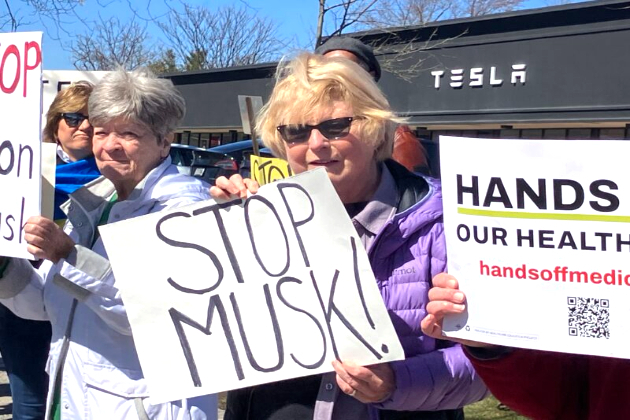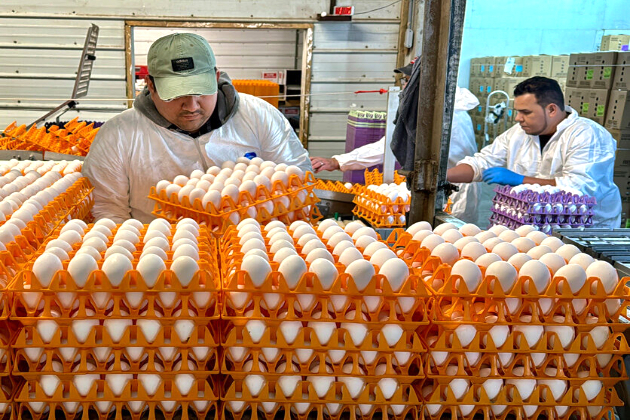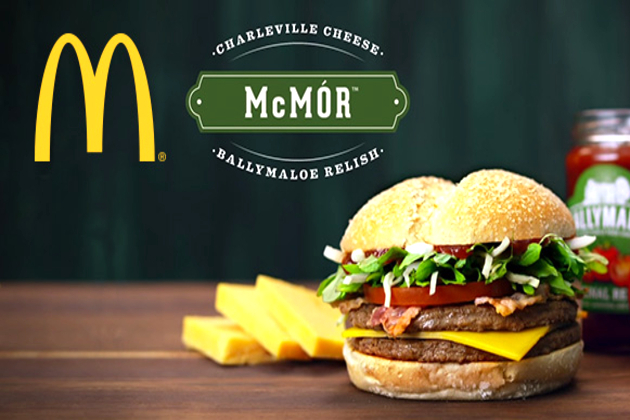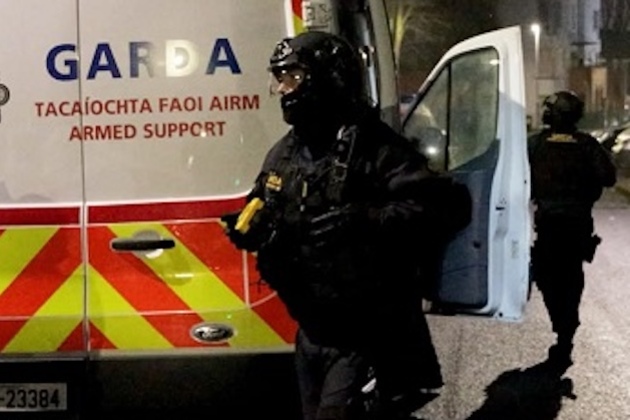T-cells: the superheroes in the battle against omicron
The Conversation
10 Jan 2022, 20:09 GMT+10

Omicron is spreading rapidly throughout the world, with experts claiming that 40% of the global population will be infected within the next two months. This sounds quite startling, but we still don't really know whether omicron causes more severe disease than other variants of concern. The signs so far are good, though.
With the previous widespread variant, delta, there was a clear link from infection to hospitalisation and then, in some patients, ICU admission and death. This doesn't seem to be as apparent with omicron. However, the director general of the World Health Organization, Tedros Ghebreyesus, said on January 6: "While omicron does appear to be less severe compared to delta, especially in those vaccinated, it does not mean it should be categorised as mild."
The question is why might it be less severe than delta? Are there changes in omicron that make it less troublesome? There are two aspects to this. First, omicron appears to be less able to infect lung cells. It prefers the upper airways, just like other coronaviruses that stay in the nose and throat, such as OC43, one of the coronaviruses that causes the common cold.
This is consistent with the milder symptoms that omicron causes, which are mainly to do with the nose and throat - sniffles and a dry cough. It's only when SARS-CoV-2 infects the lungs that severe disease happens, which involves symptoms such as breathing difficulties, and omicron seems to be less able to do that.
There is, however, a second aspect as to why omicron doesn't appear to be causing severe disease. And that is because a key part of the immune system, the T-cells, are well able to handle omicron.
An early concern was that omicron might somehow dodge the immune system, and this indeed is the case when it comes to antibodies. The spike protein on the surface of the SARS-CoV-2 virus is a key target for antibodies. They latch on to the spike and effectively bung it up, stopping it from interacting with the cells the virus is trying to infect and thereby providing protection. However, with omicron, the parts of the spike that antibodies recognise have changed and so antibodies are less able to neutralise the virus.
With antibodies, though, quantity can trump quality. So even if they can't bind to omicron as effectively as they did with earlier variants, your immune system, especially when boosted, can make enough antibodies to still swamp the spike protein. This is one reason why booster shots are so important.
But the really good news is that our T-cells can still recognise and eliminate omicron.
The "T" in their name comes from the thymus, an organ in the chest where they mature. They work in a different way to antibodies. When a cell is infected with a virus, it takes a piece of the spike protein from the virus and displays it on its surface. This is a bit like the infected cell waving a red flag to say it's infected. The T cells have sensors for that flag on their own surface. They latch onto the infected cell and kill it.
Like a controlled explosion
This might sound dramatic, but it's very effective. Killing the cell means the virus is eliminated, too. It's like a controlled explosion. This process can therefore control the virus and prevent severe disease.
Antibodies are like plan A: they stop the virus from getting into cells. T-cells are plan B: if the virus does infect a cell, they come along and kill that cell, stopping the virus in its tracks. They still work against it because the parts of the spike that are put up onto the surface of the infected cell - the red flags - haven't changed much in omicron.
The T-cells in your body that have been made to fight a previous version of the spike (which is in the vaccines) are well able to do their job. Several studies have shown that T-cells generated by vaccines have kept their ability to fight omicron in this way.
Your immune system has been sculpted by millions of years of evolution. It has all kinds of tricks up its sleeve and luckily, so far at least, the T-cell trick is holding up against omicron. And like other parts of the immune system, T-cells can remember the fight and do even better next time you're infected. They may well hold up against future variants, too. The T-cells are one reason for optimism that the pandemic may soon be behind us.
Author: Luke O'Neill - Professor, Biochemistry, Trinity College Dublin 
 Share
Share
 Tweet
Tweet
 Share
Share
 Flip
Flip
 Email
Email
Watch latest videos
Subscribe and Follow
Get a daily dose of Irish Sun news through our daily email, its complimentary and keeps you fully up to date with world and business news as well.
News RELEASES
Publish news of your business, community or sports group, personnel appointments, major event and more by submitting a news release to Irish Sun.
More InformationInternational
SectionApple likely to escape EU fine after browser changes
BRUSSELS, Belgium: Apple appears to have dodged a major regulatory setback in Europe, following recent changes to how users select...
FBI probing increased violence against Tesla
WASHINGTON, D.C: FBI Director Kash Patel said this week the bureau was probing what he called the increase in violent activity toward...
Alarm over nine Red Cross personnel going missing in Gaza
GAZA - Israel is refusing to allow search parties to access an area where 9 Red Cross ambulance crew members have gone missing in Gaza....
Georgia jury hits Bayer with $2.1 billion verdict over roundup claims
NEW YORK CITY, New York: A jury in Georgia has ordered Bayer, the parent company of Monsanto, to pay nearly US$2.1 billion to a man...
World mobilizes assistance for quake-hit Myanmar
The death toll in Friday's massive earthquake in Myanmar has risen to 1,644, and is expected to rise significantly. At least another...
US boosts egg imports from Brazil amid bird flu spread
WASHINGTON, D.C.: In response to soaring egg prices and supply shortages driven by a devastating bird flu outbreak, the United States...
Europe
SectionFinance Ireland gets 700 million euros to boost auto, commercial loans
DUBLIN, Ireland: Finance Ireland has secured more than 700 million euros in funding to ramp up lending for cars and commercial property,...
Apple likely to escape EU fine after browser changes
BRUSSELS, Belgium: Apple appears to have dodged a major regulatory setback in Europe, following recent changes to how users select...
Ireland doubles community funding for Lebanon, Harris announces
DUBLIN, Ireland: Ireland will double its community funding for local projects in Lebanon, Tanaiste Simon Harris announced this week...
Majority of 25-year-olds in Ireland still live at home, survey finds
DUBLIN, Ireland: A new survey from the Central Statistics Office reveals that most 25-year-olds in Ireland are still living at home,...
Objections delay McDonald's drive-thrus in Ireland
DUBLIN, Ireland: McDonald's expansion drive in Ireland has hit a roadblock as two proposed drive-thru restaurants face appeals from...
Number of arrests over Monday's organised crime bust rises to 6
DUBLIN, Ireland - A sixth person has been taken into custody following Monday's search raids in connection with an ongoing investigation...












